EU Project Pravo-Justice Supported a Training Session for the Service of Disciplinary Inspectors of the High Council of Justice
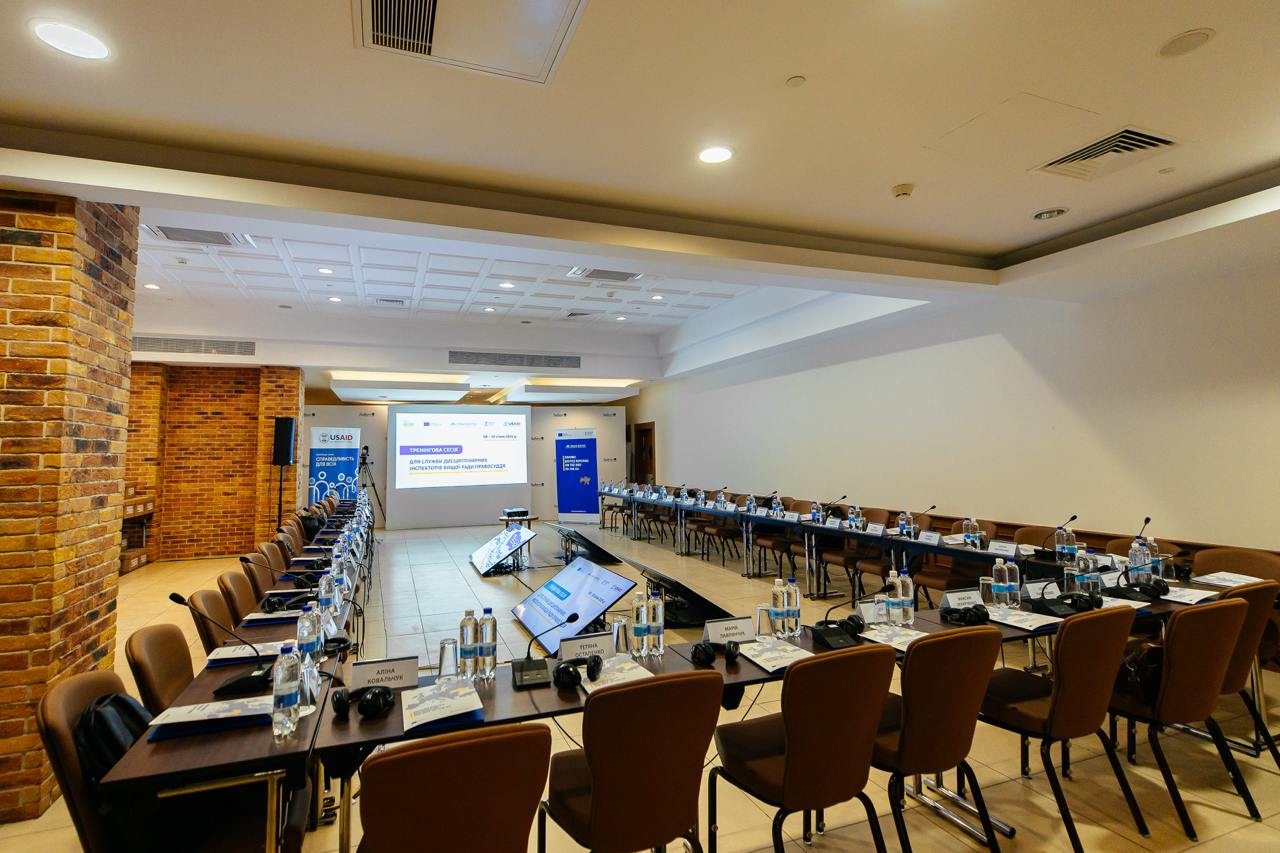
On 8-10 January, a training session for the Service of Disciplinary Inspectors of the High Council of Justice, supported by EU Project Pravo-Justice and USAID Justice for All Activity, took place in Kyiv. The training was delivered by leading national and international experts – Reda Moliene, Anatolii Miroshnychenko, Lise Marieke Julia Chipault, Branko Nikolic, Olena Ovcharenko, and Andrii Boiko. The three-day training session helped the disciplinary inspectors develop social and communication skills, in particular, in terms of building a culture of cooperation and teamwork and improving their professional expertise in working on disciplinary cases.
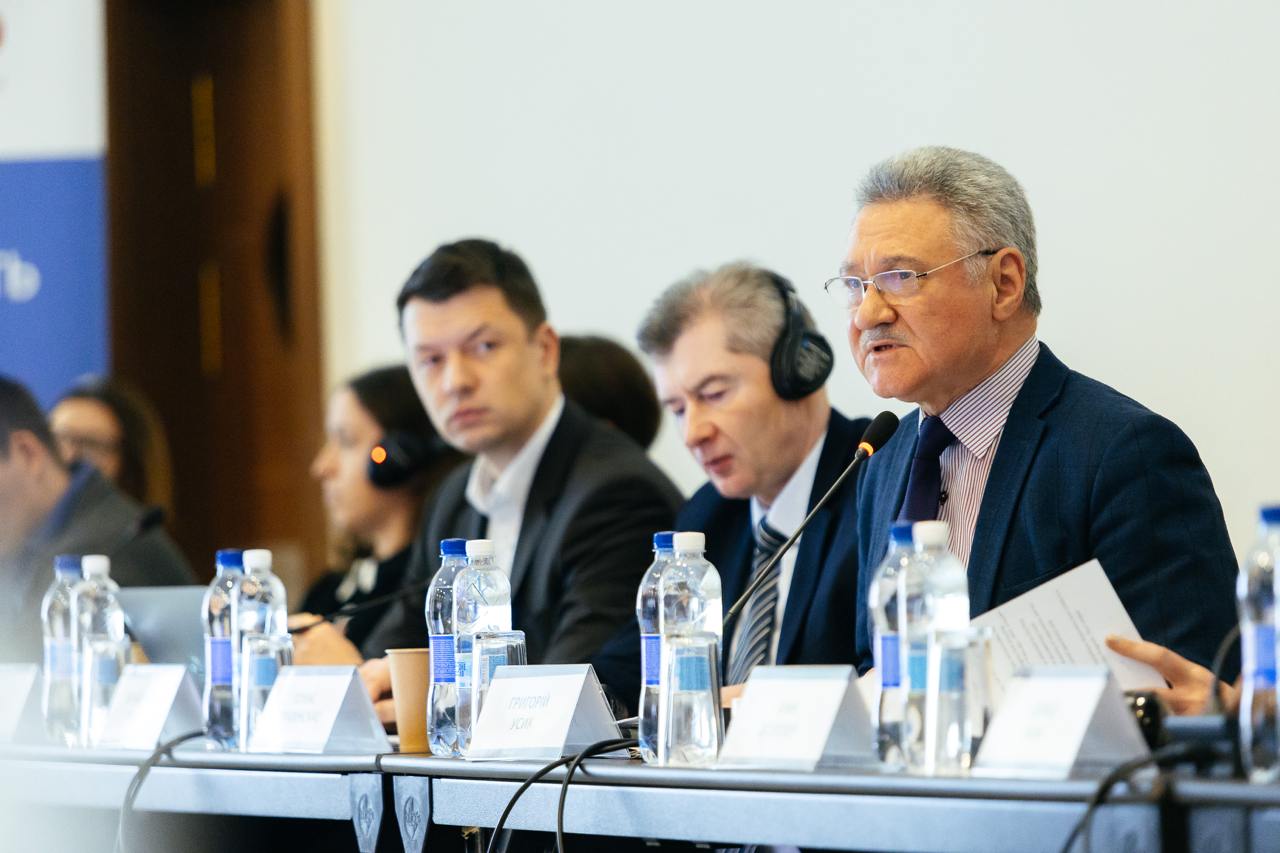
Hryhorii Usyk, HCJ Chair, noted that the Service of Disciplinary Inspectors was an independent structural unit that exercises the powers of the High Council of Justice to conduct disciplinary proceedings against judges.
“The Service of Disciplinary Inspectors was established to guarantee transparent, efficient and fair consideration of disciplinary proceedings for complainants and judges. Justice is one of the key moral factors demanded by society,” emphasised Hryhorii Usyk.
Moreover, the Chair of the High Council of Justice stressed that both Ukrainian society and international partners will closely scrutinise the work of the HCJ’s SDI, so he called on disciplinary inspectors to do their job thoroughly. After all, as he said, their performance will be measured not only by the number of cases considered but also by the quality of the preliminary examination.
Hryhoriy Usyk also expressed gratitude to international partners for their long-term and effective cooperation and assistance in resolving extremely complex issues related to reforming the judiciary in Ukraine.
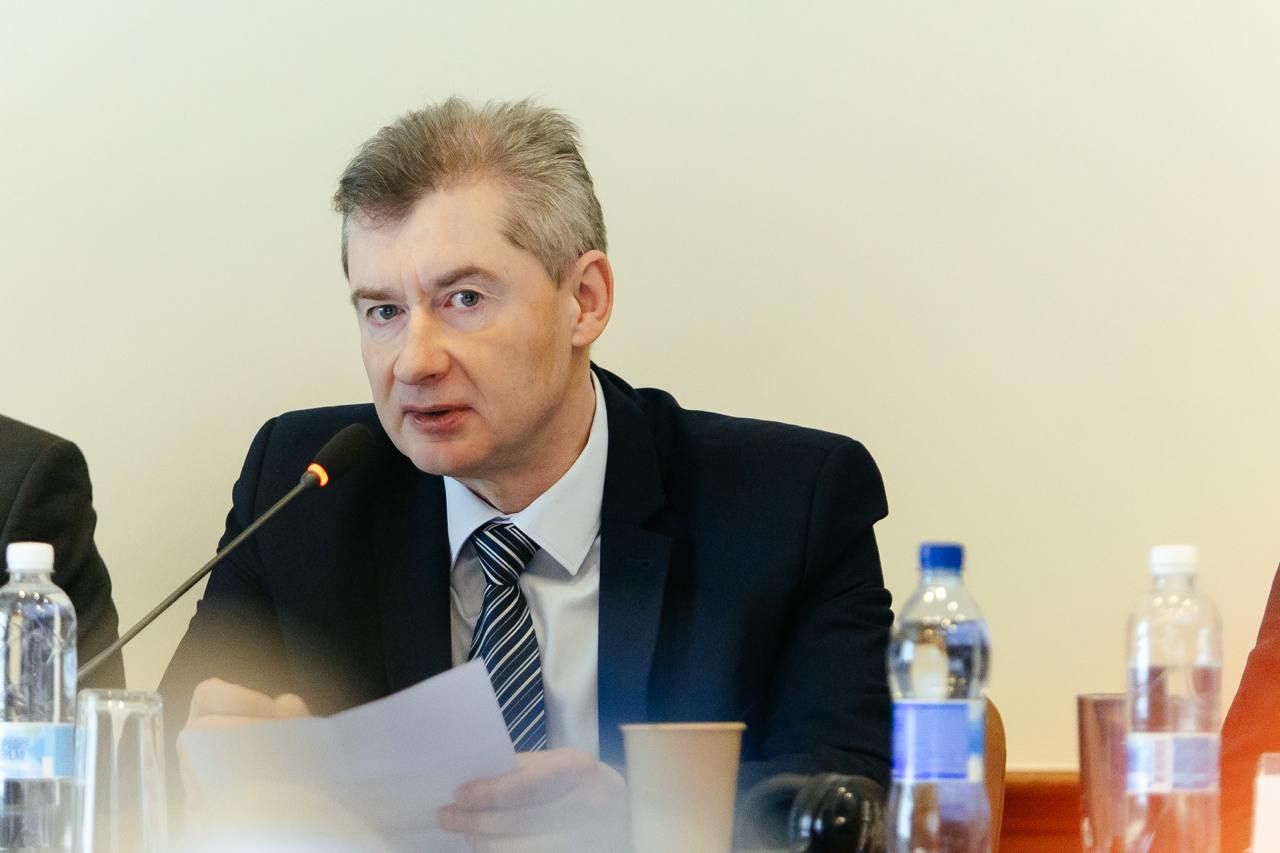
Tomas Stravinskas, Sector Manager of EU Delegation to Ukraine, congratulated the High Council of Justice and the Ukrainian government on the launch of the Service of Disciplinary Inspectors as the staff of the Service successfully passed all stages of a rigorous multi-stage selection process with the participation of international experts. He emphasised that establishing the SDI was one of the major tasks set out in the EC Enlargement Package Report.
According to him, after the successful completion of the selection process, it is essential for the newly appointed disciplinary inspectors to acquire the knowledge and skills necessary to perform their functions effectively.
“That is why EU Project Pravo-Justice, in cooperation with its partners, has organised a series of training sessions to help them in their daily work. Indeed, the Service of Disciplinary Inspectors is facing significant challenges and complex tasks. It has to build up the capacity to handle a large number of disciplinary cases and prioritise them effectively within a short time frame. In particular, according to the Ukraine Facility Plan, by the fourth quarter of this year, it is expected to resolve 20% of complaints that had not been considered by the end of 2023,” said Tomas Stravinskas.
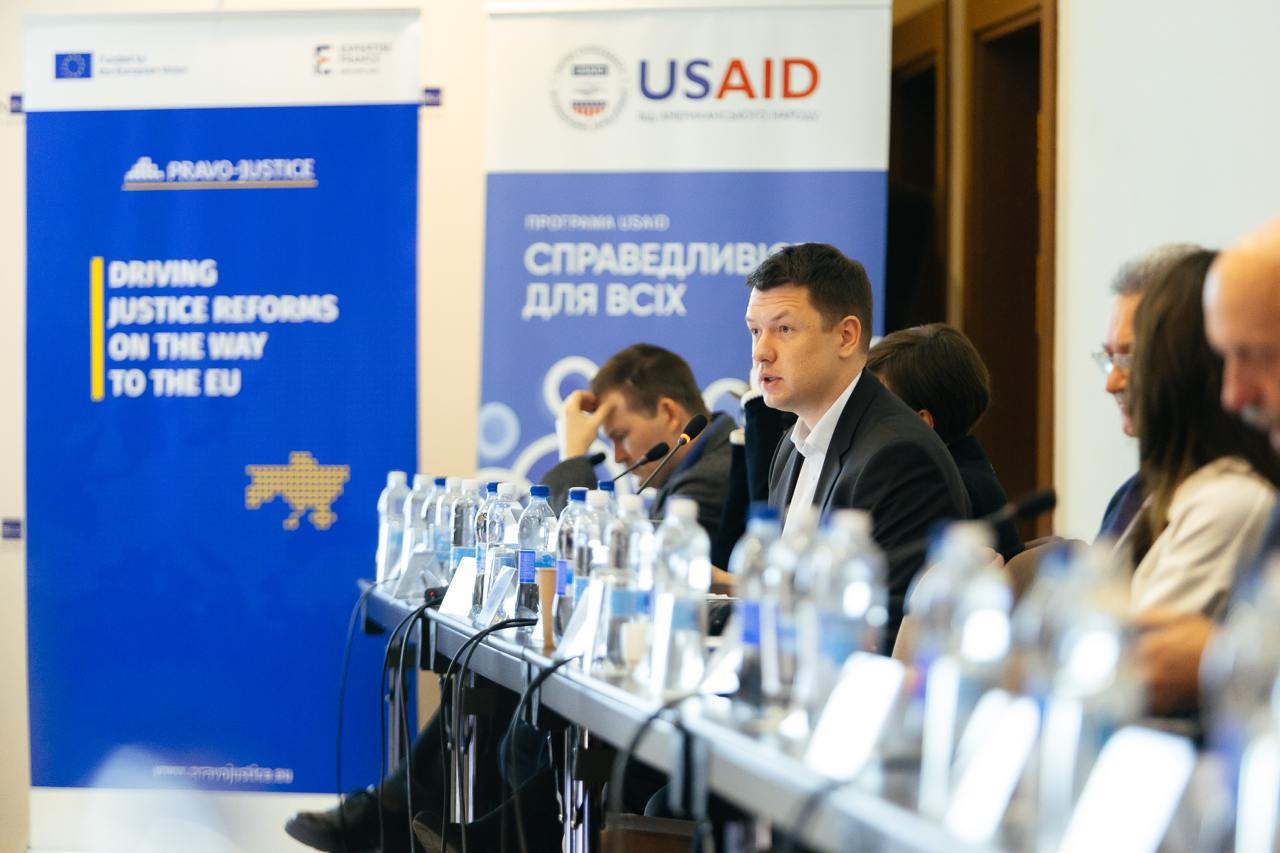
In turn, Volodymyr Chaban, Judicial Reform Component Lead of EU Project Pravo-Justice, noted that the inspectors had engaged in highly professional discussions throughout the training and had been extremely motivated to work. He also assured that EU Project Pravo-Justice would further support the Service in building its capacity to handle disciplinary cases efficiently and effectively.
“The effective and coordinated work of the Service of Disciplinary Inspectors is crucial for strengthening trust to the judiciary and upholding high standards of justice. It also plays a significant role in European integration for Ukraine and will remain a major issue in our negotiations with the EU. I am convinced that this event will help the newly appointed staff to ensure impartial and fair consideration of disciplinary cases that will help Ukraine advance towards becoming a state governed by the rule of law,” said Volodymyr Chaban, Judicial Reform Component Lead of EU Project Pravo-Justice.
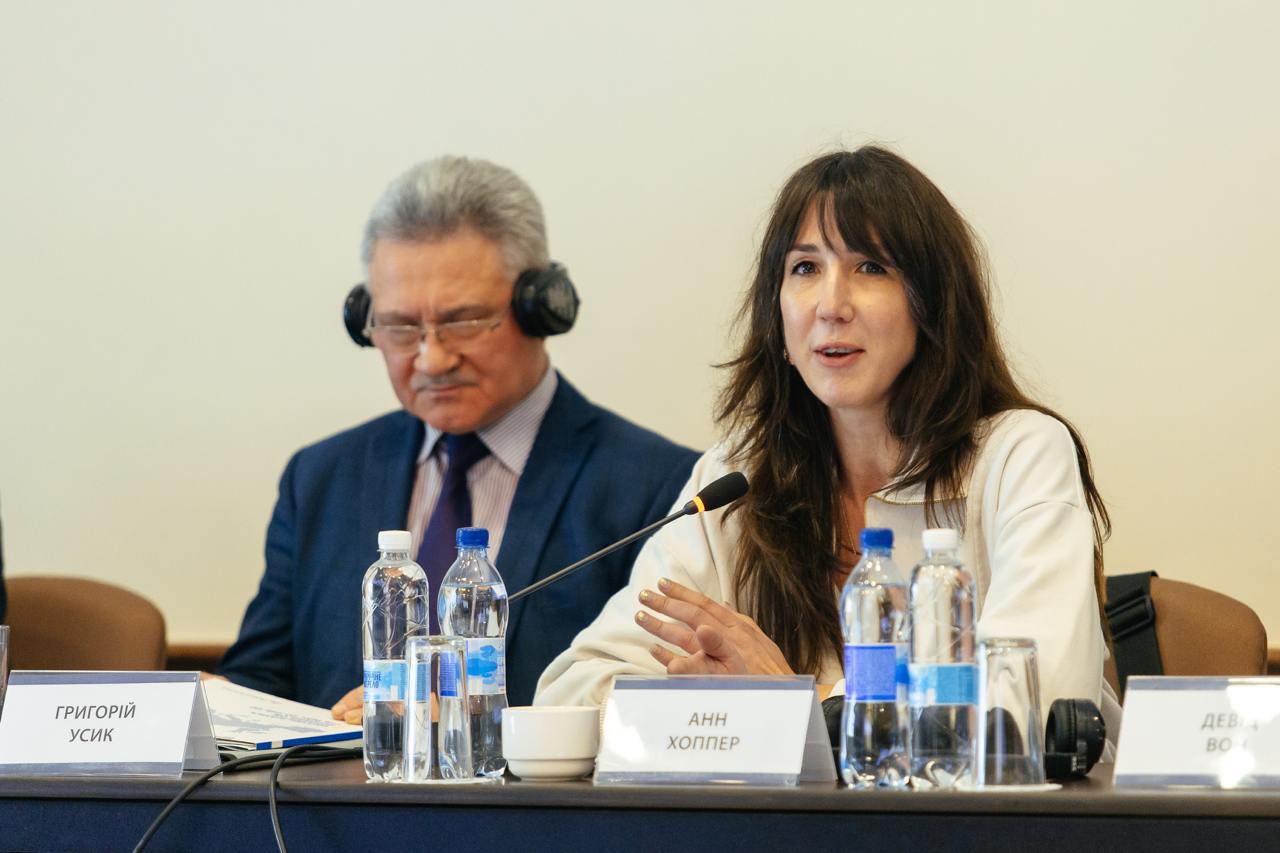
In turn, Ann Hopper, Director of the Democracy and Governance Division of USAID/Ukraine, noted that the newly established disciplinary inspector service of the High Council of Justice should demonstrate the accountability of the judicial system to society. She also assured those present of continued support and cooperation, in particular by way of involving reputable experts in improving the work of the SDI.
It should be noted that during the three-day training session, disciplinary inspectors covered, in particular, such topics as:
- Formation of a culture of cooperation and teamwork;
- Procedural aspects of the work of disciplinary inspectors;
- Evidence and substantiation in disciplinary proceedings against judges;
- Organization of work on cases and setting up work processes;
- European experience in prioritising disciplinary cases;
- Practice of the Grand Chamber of the Supreme Court on reviewing decisions of the High Council of Justice;
- Practice of the ECtHR on the disciplinary liability of judges and its importance for the consideration of disciplinary cases.